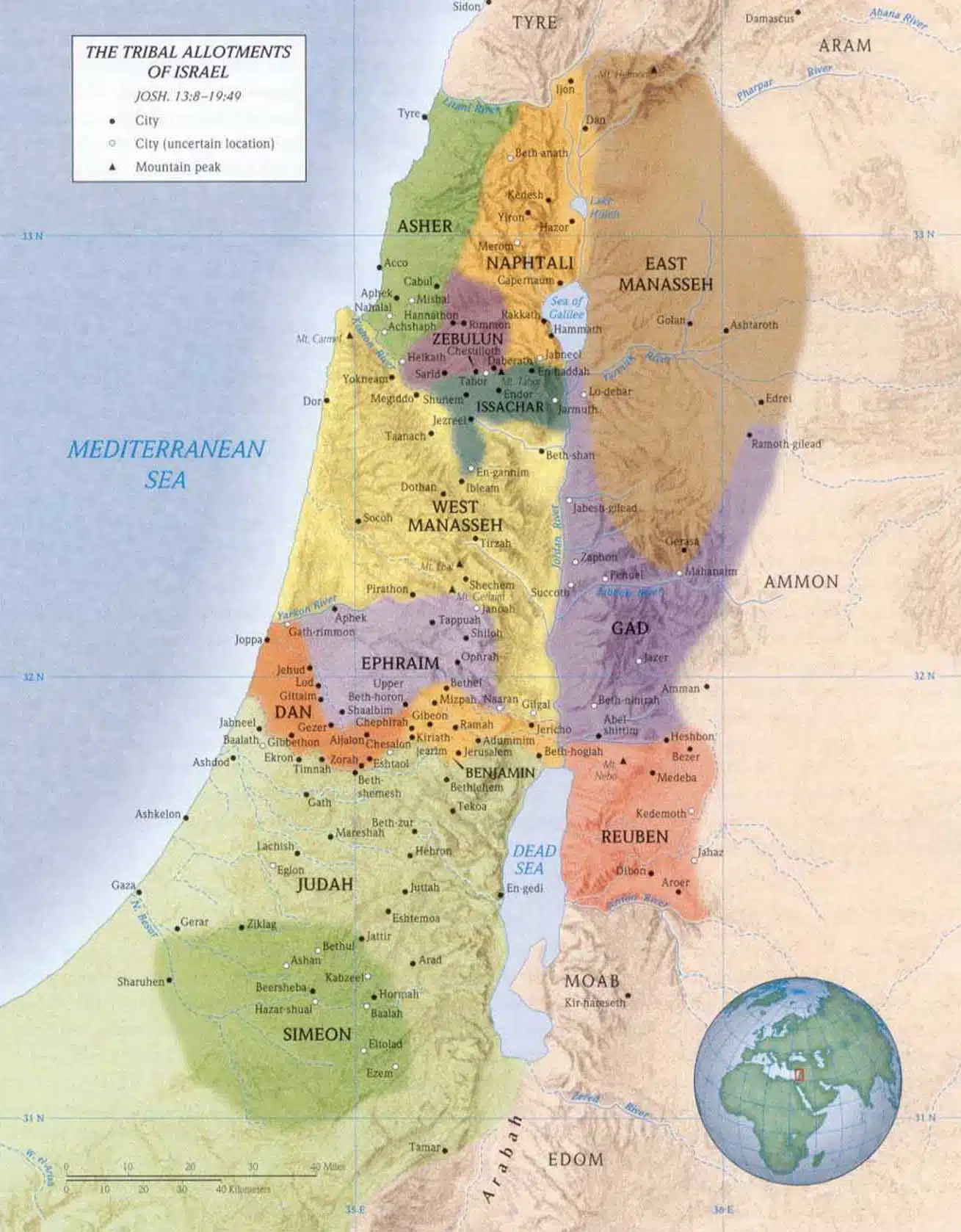After Israel’s conquest across the Jordan to the east, Moses sets apart three cities there to provide asylum for unintentional homicide.
Having conquered the cities east of the Jordan river (3:8-17), Moses found it necessary to set aside three of these cities to provide asylum for the man who committed manslaughter accidentally. Hence, after the exhortation in Deuteronomy 4:1-40, the narrator tells us that Moses set apart three cities across the Jordan to the east, that a manslayer might flee there, who unintentionally slew his neighbor without having enmity toward him in time past. So, by fleeing to one of these cities, the manslayer might live “until he stands before the congregation for trial” (Numbers 35:12).
Instructions for choosing cities of refuge also appear in Deuteronomy 19:1-13 and Numbers 35:9-34. In fact, according to Numbers 35:9-34 (see also Joshua 20:1-9), six cities in total were designated: three on the east side of the Jordan river and three on the west side of the Jordan river. Since the list in Deuteronomy 4:41-43 is limited to the east side of Jordan, comments will not be made about the cities on the west side of Jordan here.
In Deuteronomy 4:43, we learn that the first city of refuge in the eastern side of Jordan was Bezer. This town was in the wilderness on the plateau and was designated specifically for the Reubenites. Bezer was later set aside as a Levitical city and was allotted to the Merari family, according to Joshua 21:36 and 1 Chronicles 6:78. The second city of refuge was Ramoth in Gilead. It was designated for the Gadites. This city is probably identifiable with Tell Ramith today. The third city was Golan in Bashan and it was designated for the Manassites. Golan was later set aside as a Levitical city and was assigned to the sons of Gershon (Joshua 21:27; 1 Chronicles 6:56). These three cities were set aside for the tribes of Reuben, Gad, and Manasseh in case someone accidentally kills another person.
Biblical Text:
41 Then Moses set apart three cities across the Jordan to the east,42 that a manslayer might flee there, who unintentionally slew his neighbor without having enmity toward him in time past; and by fleeing to one of these cities he might live: 43 Bezer in the wilderness on the plateau for the Reubenites, and Ramoth in Gilead for the Gadites, and Golan in Bashan for the Manassites.
Check out our other commentaries:
-
Matthew 24:36-41 meaning
Jesus gives His answer to the disciples’ first question about “When will these things happen?” He tells them even though the signs He gave will...... -
Exodus 1:15-22 meaning
The second plan was even more severe – the midwives were to kill all the male Hebrew sons when they are born. But this plan...... -
Genesis 19:18-21 meaning
Lot replies that the mountains are too far to escape and requests to flee to a small town where he will be safe. ...... -
Daniel 5:10-12 meaning
The Queen arrives and reminds Belshazzar of Daniel, who was famous for having insight and godly wisdom. Daniel can help in this situation, because he...... -
Matthew 1:2-3a meaning
Matthew shares the genealogy of Jesus from Abraham to King David. And then continues through the line of kings with David’s son, Solomon. ......




